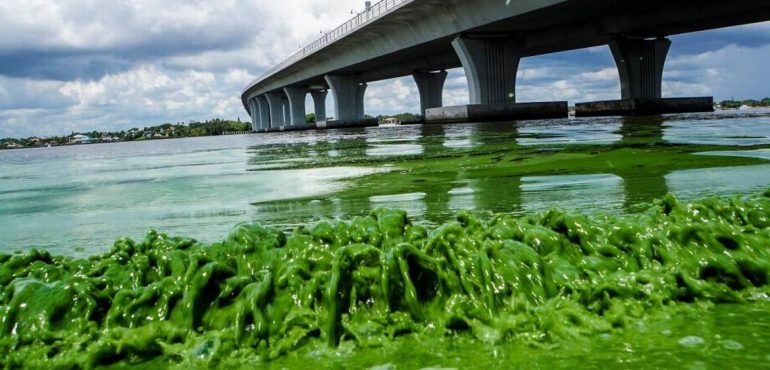Florida stands to lose up to $600 million that over the last five years has helped keep beaches poop-free, cleaned up pollution from old chemical spills and tracked leaks in thousands of underground storage tanks, according to a tally of Environmental Protection Agency budget cuts proposed by President Donald Trump.
In a study released Tuesday, the Environmental Defense Fund concluded the state could be forced to not only scale back cleaning up messes, but even on alerting the public.
“We’re facing a go or no-go, a real tipping point in terms of whether this kind of support will continue to be available to the state of Florida and its counties,” said senior director Elgie Holstein.
Congress is set to take up the proposed cuts when it meets in September. And while the cuts have not received widespread support, Holstein said he fears closed-door, horse-trading in Washington could result in trims with implications that even lawmakers may not fully understand. Trump’s slashing would eliminate 50 programs completely and cut the agency’s workforce by 20 percent.
On Florida’s chopping block: nearly $30 million to protect drinking water supplies from polluted run-off from roads and farm fields; $9 million that for the last 20 years has provided the only comprehensive assessment of ongoing Everglades restoration; and $12 million that helps keep estuaries clean and avoid the kind of algae blooms that fouled the Indian River Lagoon last year.
In a press call Tuesday, mayors from Key Biscayne, Monroe County and Naples, among the state’s wealthiest coastal communities, joined the EDF in calling for Congress to fight the cuts.
“Our village does not have the budget or expertise to do these types of things on our own. I do not see how the state of Florida will have the money to pick up the slack,” said Key Biscayne Mayor Mayra Peña Lindsay, who credited the EPA with forcing Miami-Dade County to clean up its aging sewage system after repeatedly polluting village beaches.
In addition to money, the cuts would also eliminate workers who provide valuable expertise in complicated environmental cases, said Heather McTeer Toney, the EPA regional administrator under President Barack Obama who oversaw the Southeast. Among the complicated cases those regulators helped sort out were leaky cooling canals at Florida Power & Light’s Turkey Point nuclear reactors that spilled into Biscayne Bay and threatened the Keys’ supply of drinking water, she said.
“There are good people working in these offices,” she said. “Their jobs are going to go away.”
If approved, Holstein said the cuts would take the agency back to levels of spending not seen since the 1970s, shortly after it was formed by one of Key Biscayne’s most famous residents: Richard Nixon.
Source: Miami Herald, Full Article






